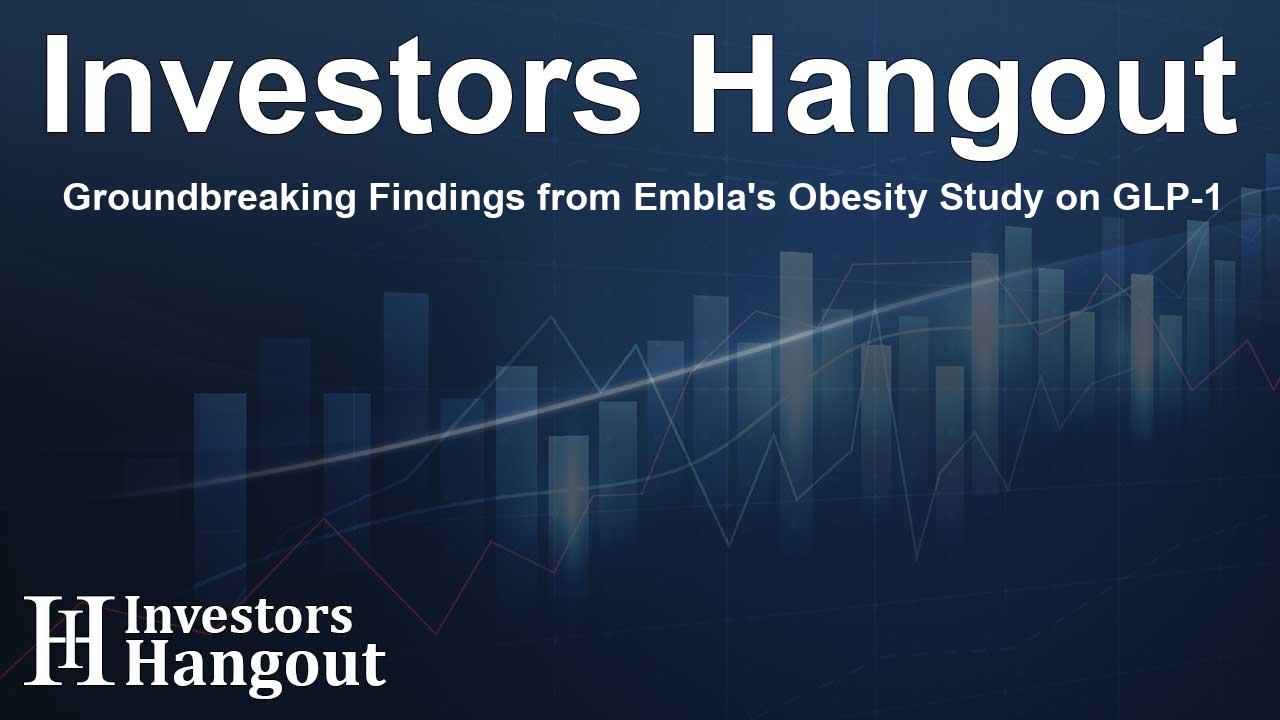Groundbreaking Findings from Embla's Obesity Study on GLP-1

Revolutionary Study Reveals Promising Results on GLP-1 Treatments
Embla has recently conducted one of the most extensive and long-term real-world obesity studies, tracking nearly 2,700 adults for 64 weeks. Participants achieved an impressive average weight loss of 16.7%, all while receiving just 1.08 mg of semaglutide weekly, which is 66% lower than typical U.S. doses. This significant reduction shows that lower doses can still yield remarkable results for patients struggling with obesity.
Presentation at the European Congress on Obesity
The findings were unveiled at the European Congress on Obesity, which is recognized as one of the leading scientific forums dedicated to obesity research. The results validate a personalized dosing model that combines clinical supervision with structured coaching and tapering plans, providing insights that could reshape obesity treatment moving forward.
Cost-Effective Solutions for Obesity Management
As the use of GLP-1 medications becomes more prevalent among U.S. employers, the stark reality is that these medications are projected to push annual pharmacy costs beyond $150 billion. This has prompted Embla to launch its innovative coaching-led, lower-dose care model aimed at ensuring sustainability for employers. By personalizing doses and providing structured support, the company aims to foster effective outcomes while maintaining cost-efficiency.
A Sustainable Approach to Obesity Care
Nicholas Syhler, co-founder and co-CEO of Embla, emphasized the issue of dose escalation in current GLP-1 treatments, stating that these powerful drugs can sometimes overshadow the importance of personalized patient care. It is crucial to design treatment plans that consider the patient’s needs rather than solely focusing on medication dosage. The results of Embla’s study underscore the potential to achieve significant health improvements with lower doses through thoughtful and supportive care.
The Paradigm Shift in GLP-1 Treatment Adoption
The increasing adoption of GLP-1 therapies among employers in the U.S. points to a vital opportunity to challenge prevailing practices in weight management. The traditional focus on escalating doses often lacks clarity in tapering protocols and sustainable action plans for patient care. With the emergence of Embla’s innovative approach, healthcare providers can now better address rising pharmacy costs and patient satisfaction while ensuring meaningful health outcomes.
Innovative Coaching Techniques to Support Weight Management
Embla's success can be attributed in part to its unique coaching techniques grounded in Acceptance and Commitment Therapy (ACT) and Cognitive Behavioral Therapy (CBT). These evidence-based practices support lasting behavior changes, which are essential for sustainable weight management and obesity care. By integrating these psychological methods with clinical oversight, Embla shapes a more accessible and patient-centered approach to treating obesity.
Study Publication and Future Prospects
The study, titled "Treat to Target in Weight Management with Semaglutide: Real-World Evidence from an eHealth Clinic," is currently under peer review, with full publication anticipated soon. It represents a significant advancement in understanding how lower-dose GLP-1 treatments can achieve substantial weight loss and highlights the preprocessing challenges of high-dose models that require consideration in future approaches.
About Embla
Embla is an innovative digital weight care solution tailored for cost-efficient U.S. employers. Their approach, which combines GLP-1 micro-dosing with psychological coaching, achieves an average weight loss of 16.7% over a year while utilizing 66% less medication. This unique care model has been validated by extensive research, including partnerships with esteemed institutions such as the University of Copenhagen. Founded in Denmark, Embla is now trusted by U.S. pharmacies and is expanding its reach to multiple regions, including the U.K. and Denmark.
Frequently Asked Questions
What were the key findings of Embla's weight loss study?
Embla's study revealed that participants lost an average of 16.7% of their body weight using significantly lower doses of semaglutide, showcasing the effectiveness of personalized dosing.
Where were the results of the study presented?
The findings were presented at the European Congress on Obesity, a major event for the scientific community focused on obesity research.
How does Embla's care model differ from typical GLP-1 treatments?
Embla's model emphasizes personalized care, with fewer patients escalating doses and extensive clinical support, including behavioral coaching and tapering plans.
What is the projected cost of GLP-1 drugs in the U.S.?
Annual pharmacy costs for GLP-1s are expected to exceed $150 billion, prompting the need for more sustainable care models.
What therapeutic approaches does Embla incorporate?
Embla utilizes Acceptance and Commitment Therapy and Cognitive Behavioral Therapy in its coaching, aiming to facilitate lasting behavioral changes in weight management.
About The Author
Contact Thomas Cooper privately here. Or send an email with ATTN: Thomas Cooper as the subject to contact@investorshangout.com.
About Investors Hangout
Investors Hangout is a leading online stock forum for financial discussion and learning, offering a wide range of free tools and resources. It draws in traders of all levels, who exchange market knowledge, investigate trading tactics, and keep an eye on industry developments in real time. Featuring financial articles, stock message boards, quotes, charts, company profiles, and live news updates. Through cooperative learning and a wealth of informational resources, it helps users from novices creating their first portfolios to experts honing their techniques. Join Investors Hangout today: https://investorshangout.com/
The content of this article is based on factual, publicly available information and does not represent legal, financial, or investment advice. Investors Hangout does not offer financial advice, and the author is not a licensed financial advisor. Consult a qualified advisor before making any financial or investment decisions based on this article. This article should not be considered advice to purchase, sell, or hold any securities or other investments. If any of the material provided here is inaccurate, please contact us for corrections.
